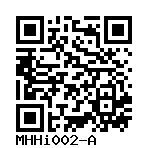CF(1)iPS5
MHHi002-A
General
Donor Information
General Donor Information |
|
| Sex | male |
Phenotype and Disease related information (Donor) |
|
| Diseases | A disease was diagnosed.
|
External Databases (Donor) |
|
| BioSamples | SAMEA7418668 |
Ethics
| Has informed consent been obtained from the donor of the embryo/tissue from which the pluripotent stem cells have been derived? | Yes |
| Was the consent voluntarily given? | Yes |
| Has the donor been informed that participation will not directly influence their personal treatment? | Yes |
| Can you provide us with a copy of the Donor Information Sheet provided to the donor? | Yes |
| Do you (Depositor/Provider) hold the original Donor Consent Form? | Yes |
| Alternatives to consent | |
| Has the donor been informed about how her/his data will be protected? | Yes |
| Please indicate whether the data associated with the donated material has been pseudonymised or anonymised. | pseudonymised |
| Does consent explicitly allow the derivation of pluripotent stem cells? | Yes |
| * Does consent expressly prevent the derivation of pluripotent stem cells? | No |
| Details on restriction to research project | |
| Does consent prevent CELLS DERIVED FROM THE DONATED BIOSAMPLE from being made available to researchers anywhere in the world? | No |
| How may genetic information associated with the cell line be accessed? | No information |
| Will the donor expect to receive financial benefit, beyond reasonable expenses, in return for donating the biosample? | No |
| Does consent permit access to medical records of the donor? | No |
| Please describe how access is provided: | |
| Does consent permit access to any other source of information about the clinical treatment or health of the donor? | No |
| Contact data, institution, or website: | |
| Has a favourable opinion been obtained from a research ethics committee, or other ethics review panel, in relation to the Research Protocol including the consent provisions? | Yes |
| Name of accrediting authority involved? | MHH Ethikkommission |
| Approval number | |
| Has a favourable opinion been obtained from a research ethics committee, or other ethics review panel, in relation to the PROPOSED PROJECT, involving use of donated embryo/tissue or derived cells? | Yes |
| Name of accrediting authority involved? | MHH Ethikkommission |
| Approval number | |
| Please describe: | |
| Further constraints on use | |
| For generation of the cell line, who was the supplier of any recombined DNA vectors or commercial kits used? | |
| Constraints for use or distribution |
hIPSC Derivation
General |
|
| Source cell type |
An endothelial cell comprises the outermost layer or lining of anatomical structures and can be squamous or cuboidal. In mammals, endothelial cell has vimentin filaments and is derived from the mesoderm.; From FMA: 9.07.2001: Endothelial cell has always been classified as a kind of epithelial cell, specifically a squamous cell but that is not true. First, endothelial cell can either be squamous or cuboidal (e.g. high-endothelial cell) and secondly, it has different embryological derivation (mesodermal) than a true epithelial cell (ectodermal and endodermal). The basis for present classification is the fact that it comprises the outermost layer or lining of anatomical structures (location-based) but a better structural basis for the differentia is the cytoskeleton of the cell. Endothelial cell has vimentin filaments while an epithelial cell has keratin filaments. [Onard].
Synonyms
|
| Source cell type (free text) | endothelia colony forming cell from peripheral blood |
Reprogramming method |
|
| Vector type | Integrating |
| Vector | Virus (Lentivirus) |
| Is the used vector excisable? |
Yes |
| Absence of reprogramming vector(s)? |
No |
| Reprogramming vectors silenced? | |
Vector free reprogramming |
|
Other |
|
| Derived under xeno-free conditions |
Unknown |
| Derived under GMP? |
Unknown |
| Available as clinical grade? |
Unknown |
Culture Conditions
| Medium |
Other medium:
Base medium: Knockout DMEM
Main protein source: Knock-out serum replacement Serum concentration: 20 % |
Characterisation
Analysis of Undifferentiated Cells
| Marker | Expressed | Immunostaining | RT-PCR | Flow Cytometry | Enzymatic Assay | Expression Profiles |
| POU5F1 (OCT-4) |
Yes |
|
|
|||
| TRA 1-60 |
Yes |
|
|
|||
| SOX2 |
Yes |
|
||||
| NANOG |
Yes |
|
Genotyping
Karyotyping (Cell Line) |
|
| Has the cell line karyotype been analysed? |
Yes
46[XY]
Passage number: 22
|
Other Genotyping (Cell Line) |
|


Login to share your feedback, experiences or results with the research community.